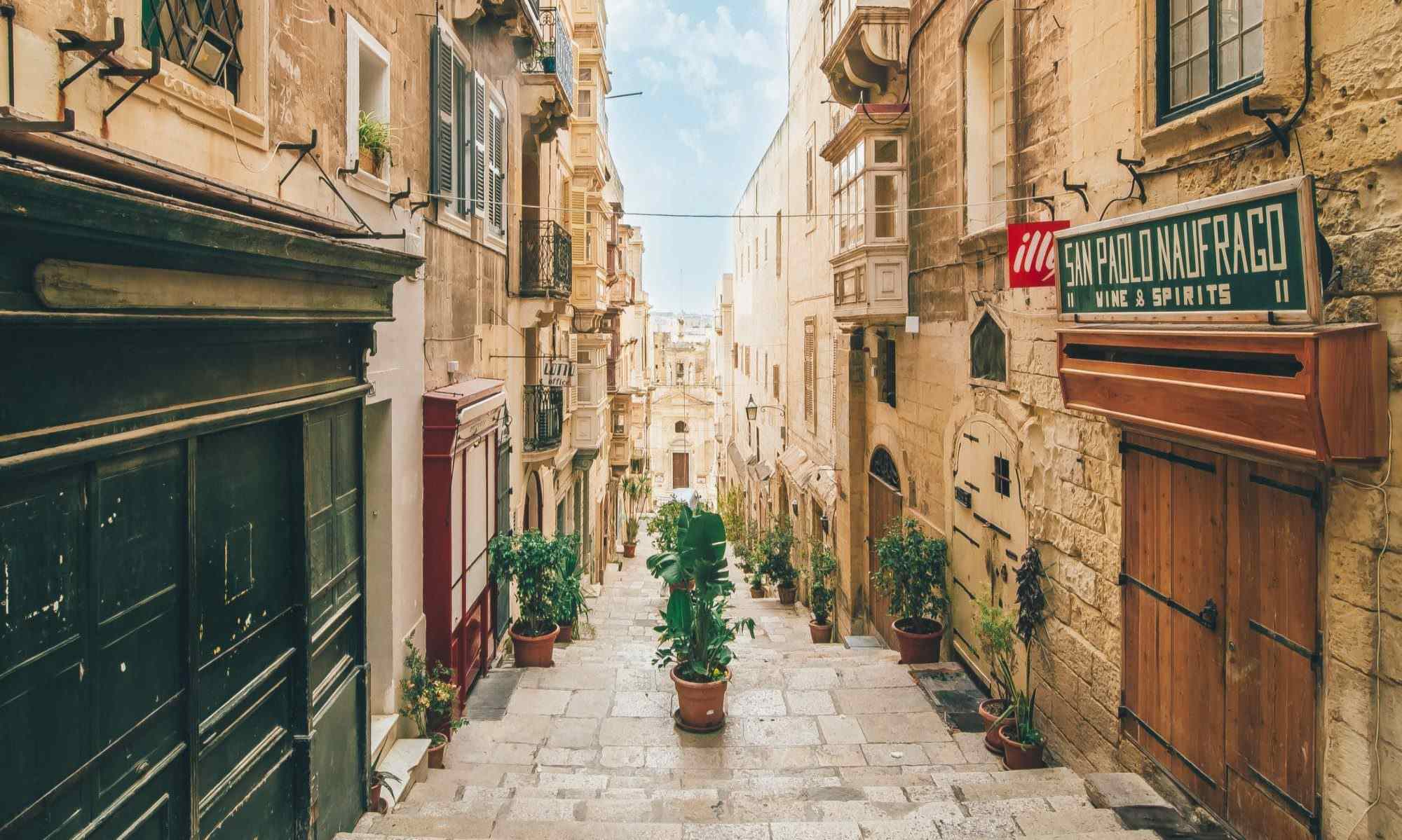Malta has a straightforward if sophisticated process when applying for residence permits that you will need when staying for more than three months.
If you decide that you love Malta as much as I do and want to stay permanently, it is usually just as easy to obtain permanent residence status after living here for five years.
Effective permanent residence in Malta is also one of the necessary steps before you apply for Maltese citizenship.
From costs to requirements to benefits of permanent residence in Malta, you’ll find everything you need to know about this important legal step in this guide.
Table of Contents
Ordinary Residence for Permanent Residents of Malta from Europe
This is the catch-all residence permit for EU nationals not participating in one of Malta’s special residence programs.
After five years under this status, residents can apply to have their residence acknowledged as permanent. This change does not confirm new benefits or privileges but may help with an eventual citizenship application and can help maintain Maltese residency during extended absences.
Speaking of which, ordinary residents who want to have permanent residence status conferred will have to show that they have not been away from Malta for more than six months in any one year or more than a total of 10 months within the five years.
Those with an Ordinary Residence visa pay income tax according to the usual tax rates applicable under Malta’s bracket system.
Financially dependent family members, who are not EU nationals, can also apply as part of the main application.
Long Term Residence for Third-country Nationals
Those from outside the EU/EEA/Switzerland (also known as “third-country nationals”) are eligible to have their temporary residence permit converted to long-term status with Long Term Residence Permit.
Technically, this permit is only valid for five years but can be automatically renewed indefinitely.
Conditions for a Long Term Residence Permit
Those who want to apply for this permanent residence visa in Malta must have met these conditions including:
- Spent five consecutive years living legally in Malta.
- Absences are allowed for up to six months in one year and 10 months total over the five years.
- Longer absences may be accepted, on a discretionary basis, for work postings, business travel, medical treatment or education.
- Demonstrate economic self-sufficiency (both presently and over the last two years) by showing income of at least Malta’s minimum wage plus an added 20% for each dependent family member.
- Have accommodation which is regarded as normal for a comparable family in Malta and meets the standards established by the Maltese Housing Authority.
- Coverage with health insurance (including for all dependents) that rises to the same standards as what a Maltese national receives.
- Pay for and pass (with marks of at least 75%) courses in Malta’s history and environment and also one for English proficiency.
- Submit a complete history of your time in Malta including arrivals and departures, where you lived and how you supported yourself economically.
- Demonstrate evidence of integration measures you’ve undertaken such as learning Maltese and attending citizenship courses.
What if You Have Permanent Residence Status in Another EU Member State
If you’re a third-country national but have been granted permanent residence status in an EU country other than Malta, it is relatively easy to get a visa to live in Malta for more than three months.
To qualify you must:
- Have a job in Malta or be running your own company.
- Be enrolled in a full-time educational program.
- Meet all of the usual requirements such as financial self-sufficiency, having somewhere to live, etc.
Benefits of Permanent and Long Term Residence in Malta
Effectively upgrading your residence status in Malta from temporary to permanent offers long-term certainty that you’ll keep the benefits you already have including:
- Visa-free travel within the Schengen zone.
- Eligibility for Malta’s favorable tax rates.
- The enjoyment of Malta’s pleasant climate and diverse cultural heritage.
Permanent Residence as a Route to Maltese Citizenship
In order to attain Maltese citizenship by naturalization, you have to have been resident in Malta for at least five years. That means meeting the requirements for permanent residence status.
Malta’s Option for Permanent Residence by Investment
Unlike some other other countries, Malta doesn’t technically offer an option for a permanent residence visa by investment.
On one hand, Malta’s Residence Visa Programme, also known as a golden visa, is open-ended. But some of its conditions run out after five years and it has limited privileges (the ability to work in Malta is not included) compared to permanent residence status.
Malta also offers investors the opportunity to skip right over permanent residence status and buy a passport by participating in the Malta Individual Investor Programme.
More details about this citizenship-by-investment program are covered in a separate guide.
Logistical Concerns Including the Cost of Permanent Residence Status
Depending on the type of permit you apply for, timing may be critical.
For instance, if you are an EU national and are applying for Ordinary Residence, it can take four weeks for your e-residence card to arrive. Because this needs to be done before your three-month tourist visa runs out, you should apply as soon as you have a fixed address in Malta.
All residence applications are handled by Identity Malta and the relevant forms can be found on their website. Completed forms should be submitted, in person, at their office in Valletta’s St. Elmo Square at the Evans building.
What fees will you pay on submitting your application? Here’s what to consider:
- Several of the special tax residency permits (Malta Retirement Programme,
- Global Residence Programme, etc.) have special one-time registration fees between €2,500 and €6,000.
- If you are an EU national and applying for permanent residence under the Ordinary Residence scheme, these will not apply. (Unless you want to spend six or more months per year abroad and apply for the Malta Residence Programme).
- If you are applying for Long Term Residence permit you will have to pay for the courses on Malta’s history and culture and also English proficiency.
- The application fee for permanent residence permits is €125 for 5 years.
- You may have to pay to have supporting documents translated into English.
- The government now mandates that any application for residency can only be submitted by an Authorised Registered Mandatory. Keep in mind that paying this professional to make this process quick and easy for you will add to the cost.
What Malta’s Permanent Residence Permit Can do for You
Malta offers a clear path for expats to move from tourist visas to temporary residence status to a permanent residence permit in Malta.
It’s worth knowing that:
- There are separate stream for EU/EEA/Swiss nationals.
- Generally there are no new privileges for permanent residents except that you may not be tied to the requirement to be in Malta for six months of every year.
- In most cases, permanent residence status is a necessary stepping stone to applying for Maltese citizenship.
Depending on your particular situation, there may be some finer details of the process that you want to discuss. Get in touch with your questions and I’ll be happy to help.


